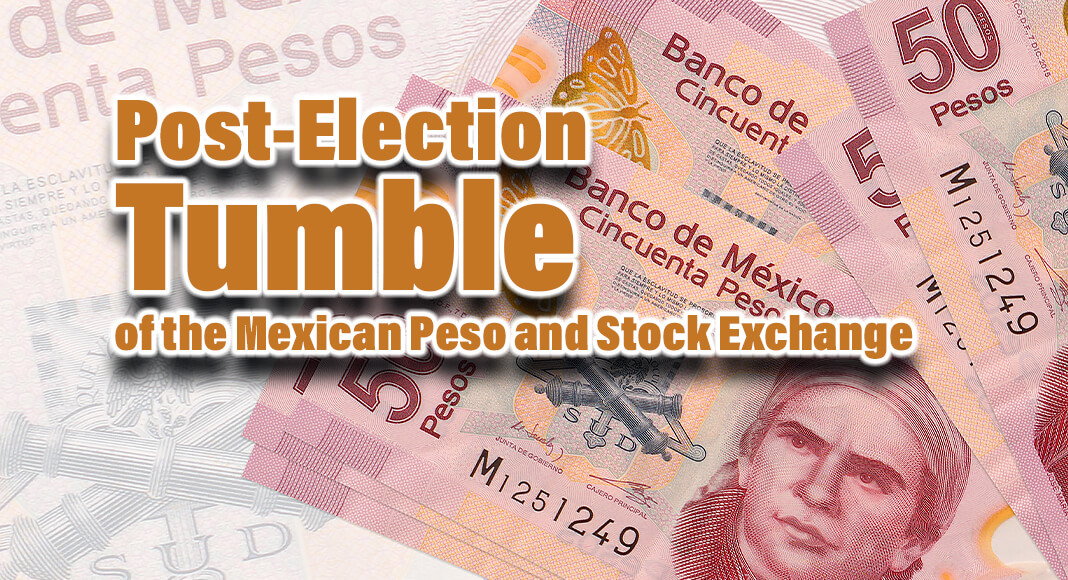
Texas Border Business
Texas Border Business
Overview
Following Claudia Sheinbaum’s election as the new president-elect of Mexico and the Morena party’s significant wins in Congress, the Mexican peso and the Mexican stock exchange experienced notable declines. The currency and stock market reactions are largely attributed to market concerns over the potential for swift and significant constitutional reforms without opposition input.
Key Factors Contributing to Market Reactions
- Political Landscape and Market Uncertainty
- Morena Party Dominance: The Morena party and its allies secured large majorities in both houses of Congress, raising concerns about the potential for unchecked legislative changes. This dominance means that the party can pass constitutional reforms with minimal opposition, leading to uncertainty about future economic policies and reforms.
- Sheinbaum’s Landslide Victory: Claudia Sheinbaum’s decisive win, coupled with the Morena coalition’s control, suggests significant continuity and potential acceleration of the current administration’s policies, which might include reforms perceived as market unfriendly.
- Immediate Market Reactions
- Currency Depreciation: The Mexican peso fell sharply, reaching a low of 18.15 to the USD, marking a more than 10% depreciation from its April high of 16.30. The peso’s decline reflects investor concerns over the political shift and its potential impact on the economic environment.
- Stock Market Decline: The Mexican Stock Exchange benchmark index fell over 6% on Monday, the most significant drop since the early COVID-19 pandemic, indicating a strong negative reaction from investors.
- Economic Policies and Investor Sentiment
- Constitutional Reform Concerns: The prospect of the Morena party easily passing constitutional reforms has heightened risk dislike among investors. Potential reforms could affect various sectors and regulatory frameworks, creating uncertainty about the business environment.
- Continuity in Financial Leadership: Despite the announcement that Finance Minister Rogelio Ramírez de la O will remain in his position, markets remained jittery, suggesting that the mere continuity of financial leadership was insufficient to allay broader concerns about policy changes.
Economic Context
- Historical Performance of the Peso
- The peso has been relatively strong due to high interest rates in Mexico, strong remittance flows, and foreign investment. However, political events significantly impact investor confidence, as seen in recent volatility.
- Market Performance Pre-Election
- Before the election, the peso had been performing well, reaching its strongest position in almost nine years in April 2024. This highlights the currency’s vulnerability to political developments.
- Impact on Investment Climate
- Risk Aversion: Investors’ risk aversion is likely driven by concerns about potential shifts in economic policy, regulatory changes, and the overall political direction under a dominant Morena government.
- Short-term Volatility: The immediate reaction reflects short-term volatility as markets digest the election results and their implications. Longer-term impacts will depend on the new administration’s actual policy changes and economic management.
Outlook
- Economic Stability and Policy Continuity
- President López Obrador has emphasized the stability of Mexico’s economic policies and public finances, suggesting no significant changes to the economic policy framework that have yielded positive results.
- Market Normalization
- The markets are expected to stabilize as the new administration’s policies become clearer. However, the risk of further volatility remains if significant reforms are proposed without broader political consensus.
- Investor Confidence
- Restoring investor confidence will be crucial. Clear communication of economic policies and assurances of a stable investment climate can help mitigate concerns.
Conclusion
The sharp decline in the Mexican peso and stock exchange following Claudia Sheinbaum’s election and the Morena party’s significant gains in Congress highlights the sensitivity of financial markets to political developments. Concerns over potential constitutional reforms and the broader political direction have increased risk aversion among investors. Moving forward, the new administration’s approach to policy-making and economic management will be critical in determining the extent to which market confidence can be restored and sustained.
Disclosure Notice to our readers:
We want to inform you that this report has been meticulously analyzed to provide a comprehensive understanding of the recent post-election tumble of the Mexican peso and stock exchange. Please note that this analysis represents our interpretation of the events and their implications. It is important to understand that our insights are not from professional financial advisors or analysts.
We encourage you to consider multiple perspectives and seek professional advice for investment or economic decisions.
Thank you for your understanding and continued readership.














